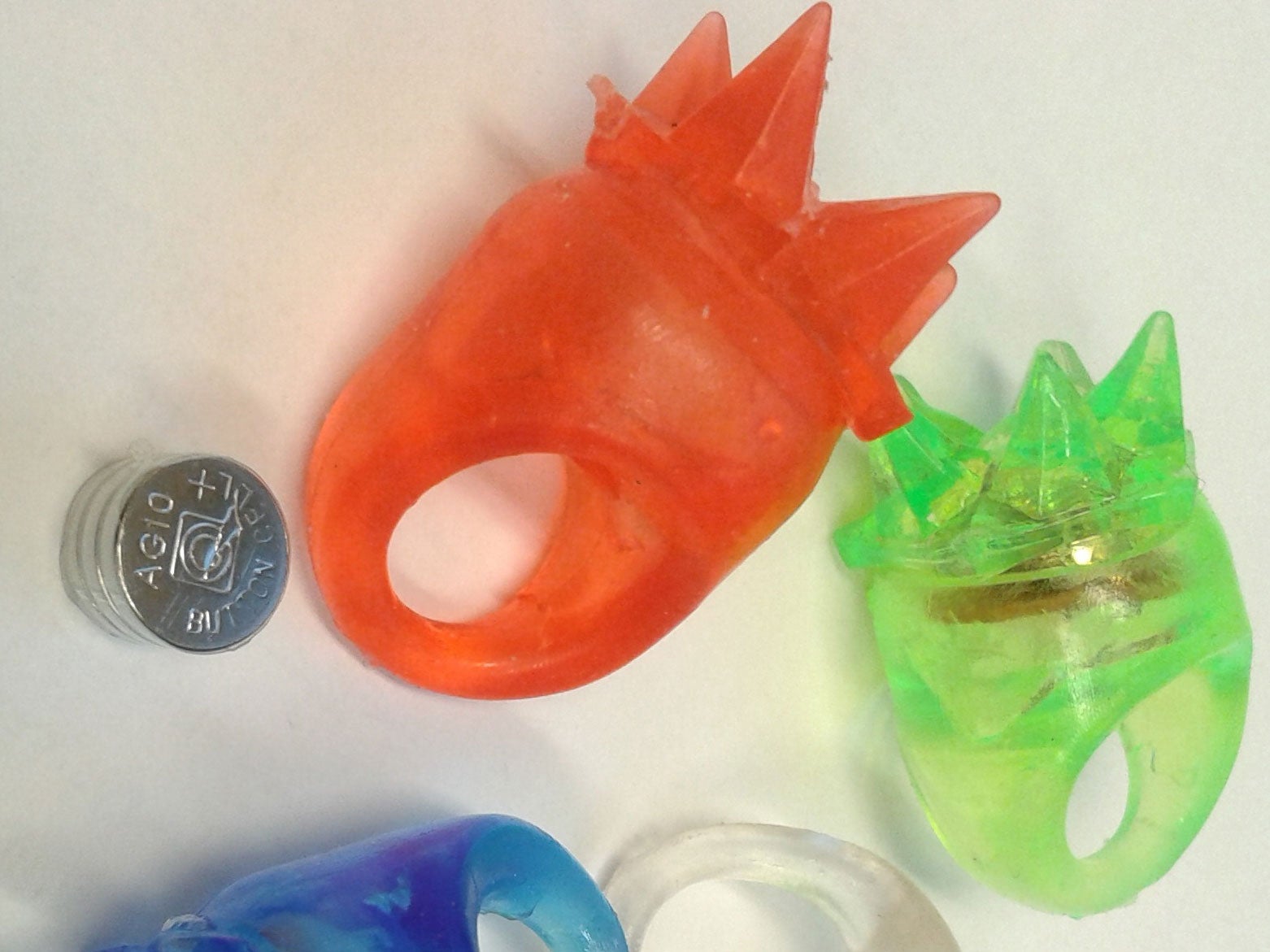Warning over 'jelly ring' toys after batteries kill children and cause internal bleeding
The tiny batteries that come out can be deadly if swallowed

Parents are being warned about potentially deadly light-up toy rings being sold in Britain.
At least one child has died after swallowing batteries similar to those contained in the colourful jelly rings last year, trading standards officers said, and five more suffered “life-changing” injuries caused by internal bleeding.
The toys contain flashing lights powered by three tiny batteries smaller than a 5p coin, which have been known to spill out.
Nottinghamshire County Council put out the warning after Kent alerted authorities when a member of the public told them one of the toy rings had split open to reveal the metal pieces.
It is believed that the toys were manufactured in China and have been exported to the UK.
Last month, NHS England issued a patient safety alert over the risk of death and serious injuries from ingesting “button” batteries.
Severe injuries are caused by a build-up of sodium hydroxide as a result of the electrical current discharged from the battery, it said, causing tissue burns in the throat that can lead to fatal haemorrhaging.
Councillor Glynn Gilfoyle, chair of the Nottinghamshire’s community safety committee, urged people to alert authorities to any rings seen in shops so they can be removed from sale.
“We want to get an urgent warning out to parents about the dangers that these types of toys pose and advise that they are kept away from children,” he added.
“The biggest danger is from the batteries inside them, which can look like sweets to children.”
NHS England said children of all ages are at risk but most swallowing cases so far have involved toddlers and those under the age of six. Elderly people may also mistake the batteries for a pill, a spokesperson said.
Join our commenting forum
Join thought-provoking conversations, follow other Independent readers and see their replies
Comments
Bookmark popover
Removed from bookmarks